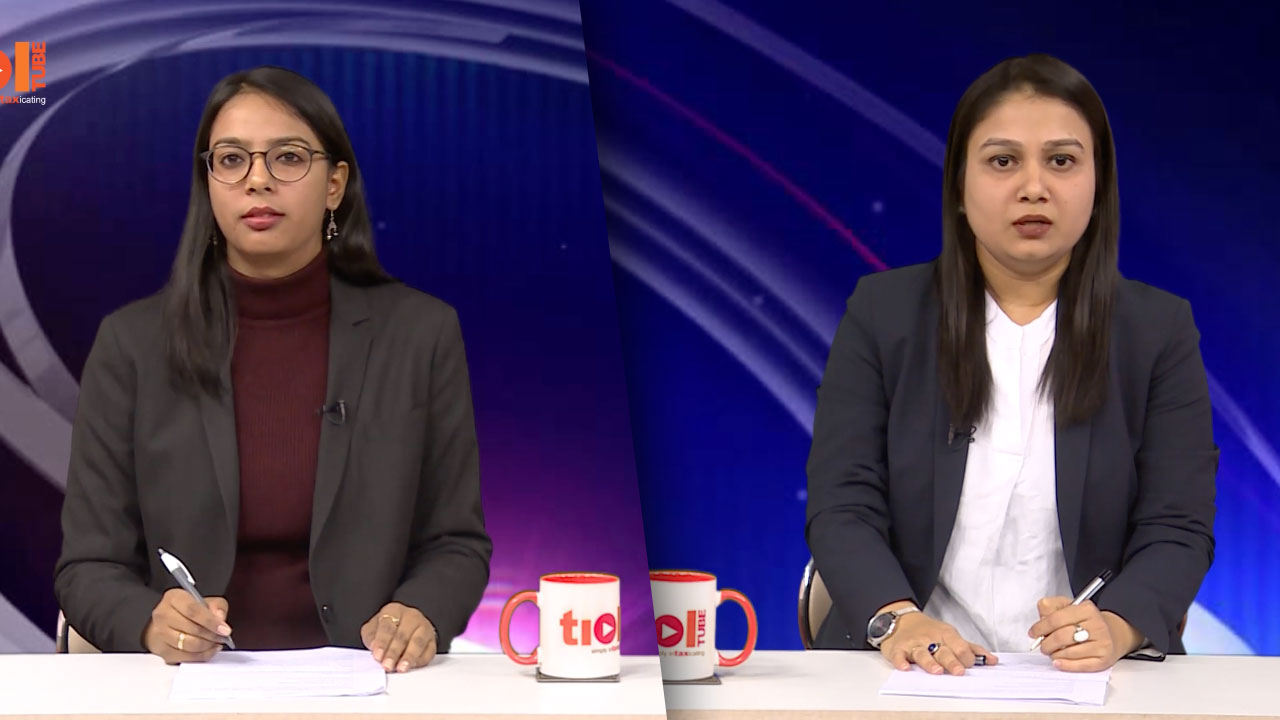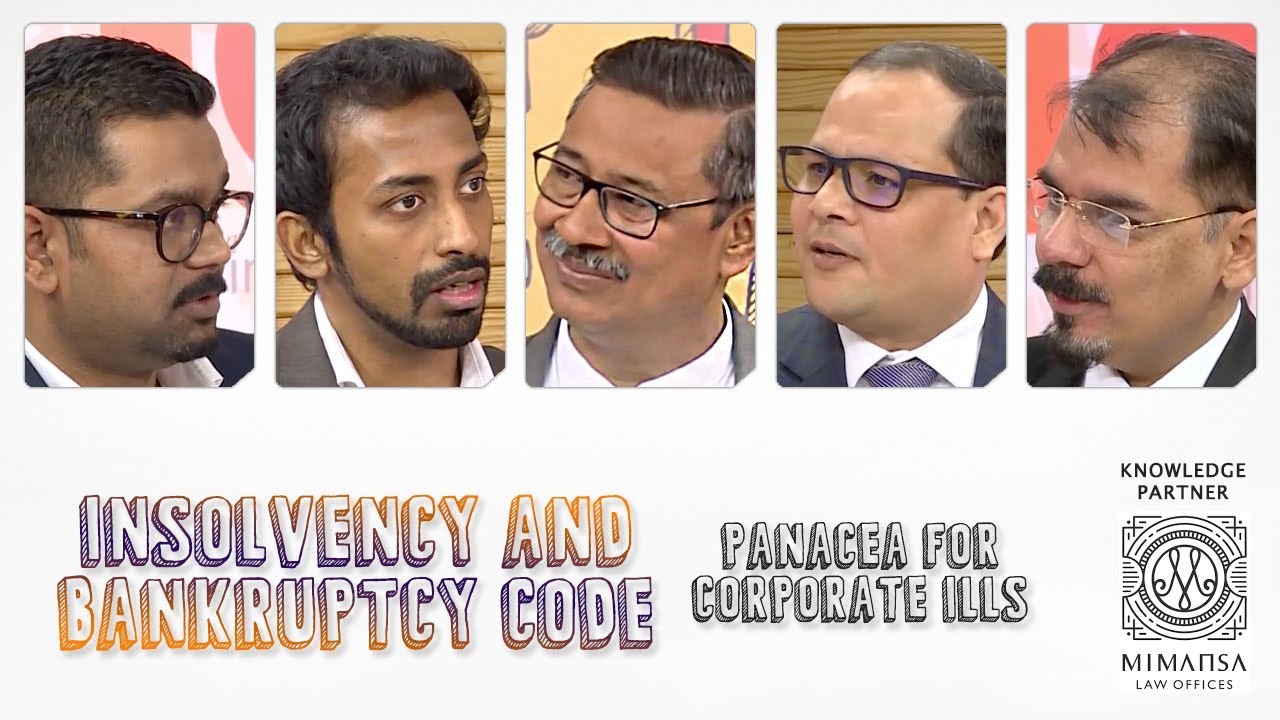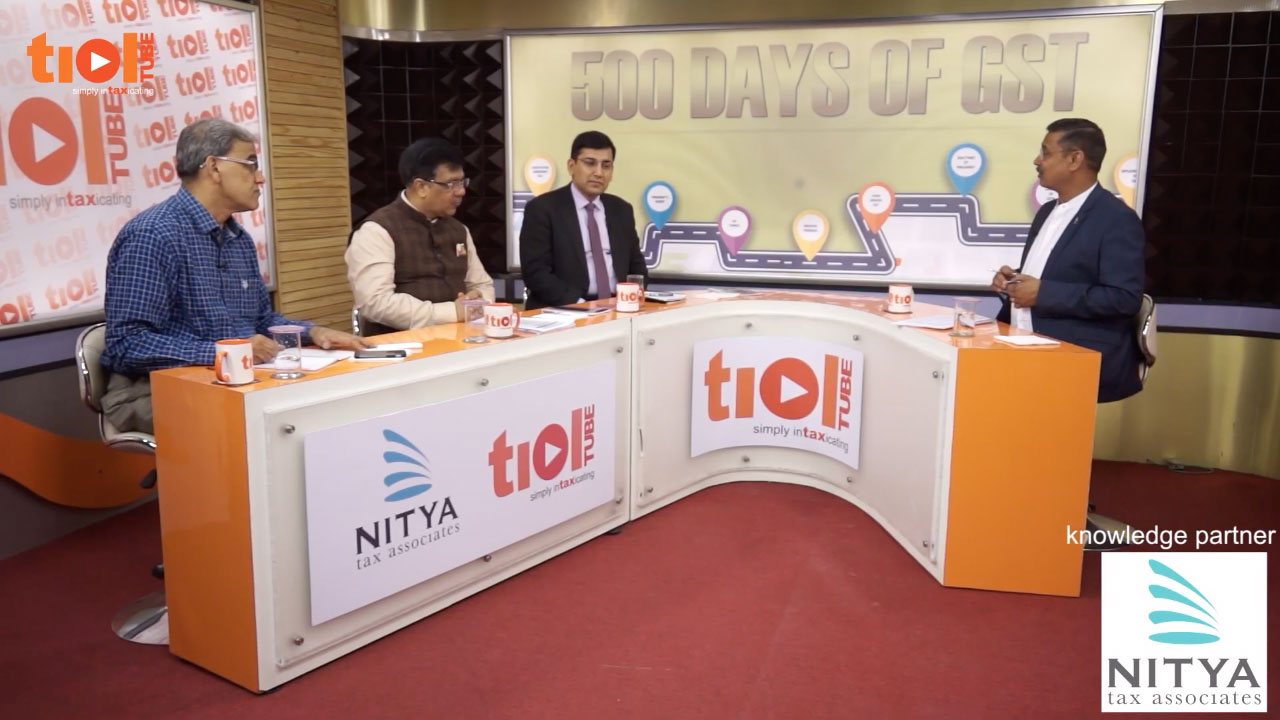SERVICE TAX
2018-TIOL-3849-CESTAT-MUM
Fis Solutions India Pvt Ltd Vs CCT
ST - Refund filed under rule 5 of the CCR, 2004 was rejected partly on the ground that the referred services of group term life insurance service, employee insurance service, rent-a-cab service and club membership service on which credit was taken are covered under the exclusion clause - appeal to CESTAT.
Held: Before rejection of the claim, appellant was not put to notice to justify the linkage between the input and output services - Invoice cannot justify the relationship between input and output service and the scrutiny made by the adjudicating authority in respect of invoices vis-à-vis abstract of CENVAT credit cannot be sufficient document for the purpose of establishment of such relationship - moreover, such scrutiny was made in the absence of the appellant, who given an opportunity, would have been in a better position to justify the same - impugned order is set aside and the matter is remanded to the adjudicating authority for fresh adjudication: CESTAT [para 5, 6]
- Matter remanded: MUMBAI CESTAT
2018-TIOL-3848-CESTAT-MUM
CCE Vs Narsinha Engineering Works
ST - Respondents are providing ‘Erection, Installation and Commissioning services' - Scrutiny of balance sheets/ledgers revealed that they paid service tax on value of 15% of gross receipts and had not charged the service tax on the bills issued to M/s MSEDCL nor have recovered the same from them - alleging that the respondent assessee were required to pay tax on 33% of gross receipts in case where services were provided with material and on 100% of gross receipt where only services were provided purely on labour charge basis, differential tax demand was issued but the same were dropped for the period 01.10.2007 to 30.06.2012 on the ground that retrospective exemption notifications were issued by the Govt. of India -Revenue in appeal before CESTAT.
Held: Vide exemption notification 11/2010-ST dated 27.02.2010, all services provided by any person to any other person (who may be an Electricity Distribution Company or not) for transmission of electricity were exempted - however, since distribution of electricity was not covered, another notification 32/2010-ST dated 22.06.2010 was issued exempting the same - moreover, vide notification 45/2010-ST dated 20.07.2010, the services in respect of which exemption has been given by the aforesaid notifications 11/2010-ST and 32/2010-ST were given retrospective effect by invoking section 11C of the CEA, 1944 r/w section 83 of the FA, 1994 - therefore, even for the period prior to the date of issuance of the said two notifications, no tax was required to be paid in respect of these services - however, notification 11/2010-ST and 32/2010-ST have been rescinded by notification 34/2012-ST dated 20.06.2012 (w.e.f 01.07.2012) and service tax is payable from the said date - Revenue appeal is, therefore, dismissed: CESTAT [para 5.1, 5.2, 5.3, 6, 10]
- Appeal dismissed: MUMBAI CESTAT
2018-TIOL-3847-CESTAT-MUM
CCE Vs Gondwana Engineers Ltd
ST - In view of Tribunal decision in BCCI - 2014-TIOL-1774-CESTAT-MUM, as upheld by the Supreme Court - 2015-TIOL-04-SC-ST Penalty under sections 76 & 78 of the Finance Act, 1994 can be imposed simultaneously prior to 10/05/2008 as the law has been amended only prospectively - Revenue appeal allowed: CESTAT [para 6, 7]
- Appeal allowed: MUMBAI CESTAT
CENTRAL EXCISE
2018-TIOL-2671-HC-MUM-CX
Commissioner of CGST & Central Excise Vs Dorf Ketal Pvt Ltd
CX - The department does not point out that monetary limit is higher than one prescribed by CBIC in its circular dated 11th July, 2018 or that the case falls within any of the exceptions provided in circular dated 17th August, 2011 - The letter of Assistant Commissioner, Raigad to the department only conveys that it is wholly discretionary within the powers of Commissioner whether to withdraw certain appeal or not - This brings out the correct intention of CBIC or for that matter correct position in law - As noted, the circular dated 11th July 2018 is issued in exercise of statutory powers and thus has statutory force - The successive circulars lay down the exceptions in which cases irrespective of the monetary limit the appeal may be pursued before the higher forum - The department, however, cannot contend that it is solely within the discretion of Commissioner whether to apply such policy or not - If the tax effect is less than the monetary limit prescribed, the department can pursue the appeal only it falls in any of the exceptions; not otherwise - This would give rise to wholly arbitrary application of Government policy which is simply not permissible in law - Excepting the stand of department would permit the authorities to withdraw appeals against one assessee, whereas without citing any reasons, pursue the appeal against the another assessee situated identically as the former: HC
-Appeal dismissed : BOMBAY HIGH COURT
2018-TIOL-2670-HC-MEGHALAYA-CX
Nalari Ferro Alloys Pvt Ltd Vs CCE & ST
CX - The assessee is engaged into manufacture and sale of goods and was availing exemption/refund of excise duty under notfn 32/99-CE - Issue arises is as to whether transportation and insurance charges are to be excluded or included in assessable value of goods same depends on the factual position linked with place of removal of goods - Once it is contended by assessee that sale was subject to inspection to be done by the customers at their end and payment was to be made by the customers after receipt of material(s) and testing/final approval with a condition that if the materials were not found as per the ordered specification, same will be rejected and lifted back by assessee at his own cost, in such a situation, place of removal is at the place of buyer on the delivery of goods subject to the satisfaction of specification and testing - There is no quarrel on legal position to the effect that when the assessee remains absent, the appeal has to be decided on merits not to be dismissed otherwise - But the question is as to whether the assessee had been given reasonable opportunity, he has categorically stated that he received the notice issued by CESTAT, Kolkata at Shillong on 10.03.2018 whereas, the case was heard by the Tribuna at Kolkata on 12.03.2018, that is why he had moved an application on the same ground for restoration of the appeal - While rejecting his application, the stand of assessee that he had received the notice on 10.03.2018 has not been refuted - Assessee has not been heard in support of his appeal by CESTAT and in the process, vital issue regarding appreciation of factual position as was projected by assessee before the Commissioner (A), has effectively remained to be looked into by the Tribunal - Matter remanded to the Tribunal: HC
- Matter remanded : MEGHALAYA HIGH COURT
2018-TIOL-3846-CESTAT-MUM
CCE Vs Mahindra And Mahindra Ltd
CX - Issue is whether the element of selling and distribution and administration expenses should form part of the cost of production in determining the Assessable value of the goods transferred to sister concern or captively consumed.
Held: Under CAS-4 method, these expenses, undisputedly, are held to be not part of the cost of the goods captively consumed - no substance in the argument of the Revenue that prior to 01.07.2000 the CAS-4 method cannot be made applicable - in fact, it has been consistently held by this Tribunal in appellant's own case that CAS-4 method of computation of production cost is restrospectively applicable - Revenue appeal is dismissed: CESTAT [para 6]
- Appeal dismissed: MUMBAI CESTAT
2018-TIOL-3845-CESTAT-AHM
Zen Tobacco Pvt Ltd Vs CCE
CX - Assessee is a manufacturer engaged in manufacture of Chewing Tobacco, which they claim to clear on payment of duty - During searches, no goods were seized from the factory premises of assessee - However, officers seized cartons of chewing tobacco from dealers, buyers and transporters engaged by dealers - The case of Revenue is that assessee indulged in clandestine manufacture and removal of their final product chewing tobacco; that goods were seized from different premises and persons dealing with goods had stated in their statements that goods were received without bills - The DGCEI officers did not find any discrepancy in physical stock of both raw materials and finished products vis-à-vis the recorded stock - Moreover, there is no statement on record from any official or employee of assessee confessing about the manufacture of excess goods and their removal from the factory without payment of duty - In similar case, Division Bench of Tribunal has observed in Vishwa Traders Pvt. Ltd. - 2011-TIOL-1890-CESTAT-AHM that the charge of clandestine manufacture and removal has to be proved beyond doubt and there is nothing to prove that assessee had clandestinely manufactured and cleared the final product - The case of Revenue is that goods were clandestinely removed to some cities - However, there is no evidence brought on record to show their transportation from assessee’s factory at Ahmedabad to those cities - The High Court of Gujarat has held in Chhaju Singh Kanwal - 2010-TIOL-860-HC-AHM-CX that clandestine removal is not established in absence of investigation to ascertain discrepancies in the stock of raw material or final product, extra working hours of factory, electricity consumption and payment of transportation bills - The Tribunal in Rama Shyama Papers Ltd. has set-aside the demand of duty as Revenue has not been able to adduce any corroborative evidence to show the movement of goods from premises of assessee.
There is no independent evidence to show that any goods were removed by assessee without payment of duty to any person or firm - This Tribunal has been consistently holding that the charge of clandestine removal cannot be proved merely on the basis of statement - Since the charge of clandestine manufacture and removal against assessee is not established, penalty is not imposable on assessee, the Director and other persons - As the Revenue has not adduced sufficient evidences to prove the charge of clandestine manufacture and removal, case of clandestine removal has not been established, the seized goods mentioned are not liable to confiscation and consequently such confiscations are set aside: CESTAT
- Appeals allowed: AHMEDABAD CESTAT
2018-TIOL-3844-CESTAT-MAD
HCL Infosystems Ltd Vs CCE
CX - Assessee was a DTA unit and had cleared monitors of various models after availing cenvat credit thereon under AR-3As and CT-3 certificates to STP units / 100% EOUs - Department took the view that the assessee had manufactured computer system alone in their unit and not the impugned monitors; hence were not eligible to clear the said monitors under CT-3 certificates by availing exemption under Notfn 22/2003-CE - The Tribunal Larger Bench in Lakshmi Automatic Loom Works Ltd. - 2008-TIOL-1905-CESTAT-MAD-LB had held that condition of direct procurement from factory of DTA manufacturer to EOU / EHTP units is not merely procedural, that inputs cleared as such by such DTA assessee to 100% EOU cannot be deemed to have been manufactured by them, hence such assessee was not entitled to remove the inputs without reversal of credit or payment of equivalent amount of duty - Said decision pertained to period of March 1996 to May 1998 when Rule 57F of erstwhile CER,1944 was in force and the benefit of Notfn 1/95-CE had been claimed by assessee - However, the controversy in the present appeal relates to the period July 1996 to December 2006 when the concerned legal provision in force was Rule 3 (5) of CCR, 2004 and the notification that was sought to be availed was No.22/2003-CE - The matter in Solectron Centum Electronics - 2014-TIOL-1652-HC-KAR-CX was referred to High Court of Karnataka by Apex Court to decide the case in the light of judgment of Tribunal in Lakshmi Automatic Loom Works Ltd. - No doubt, the High Court in Solectron Centum Electronics judgement considered the requirement or otherwise or reversal of availed cenvat credit in respect of capital goods removed from DTA to an EHTP unit - All the same, same relevant provisions in CCR, 2004 namely Rule 3 (5) were applicable during the period of dispute in this appeal also, inter alia requiring the manufacturer of final products to pay an amount equal to credit availed in respect of inputs or capital goods on which cenvat credit had been taken, when such goods were removed as such - As per the ratio laid down by High Court of Karnataka, inputs of a DTA assessee / manufacturer on which cenvat credit had been taken which have been removed as such by DTA unit to an EOU or EHTP unit or STP unit, there will not arise any legal requirement to effect payment of duty equal to the cenvat credit availed - The ratio laid down by Tribunal Larger Bench in case of Lakshmi Automatic Loom Works Ltd. has surely been overturned and set aside by High Court of Karnataka in their aforesaid judgment - In view thereof, following the ratio laid down in Solectron Centum Electronics, the impugned order cannot be sustained, for which reason it is set aside: CESTAT
- Appeal allowed: CHENNAI CESTAT
CUSTOMS
2018-TIOL-2675-HC-MUM-CUS
Micromax Informatics Ltd Vs UoI
Cus - Petitioner has challenged orders passed by the respondent no.3 rejecting the petitioner's refund claims for the period between July, 2014 to June, 2015 - can the petitioner claim refund of the excess duty paid without either challenging the so called assessment or without reassessment of the bill of entries:
Held: there have been significant statutory amendments in sections 17 and 27 of the Customs Act [Act] by virtue of the Finance Act, 2011 - earlier procedure of filing of bill of entry by importer and its assessment by the competent authority has been replaced by the self assessment to be made by the importer while filing the bill of entry and the competent authority only passing a speaking order of reassessment in case where he finds that the self assessment made by the importer is not correct - it is, therefore, that even in section 27 of the Act, the procedure for claiming refund has been suitably modified - instead of referring to claim of refund of duty or interest paid in pursuance of the order of assessment or borne by him, the amended section 27 merely refers to the claim of refund of duty or interest paid or borne by the refund claimant - thus, earlier reference to the refund of duty or interest paid pursuant to an order of assessment is now deleted - these statutory changes were noticed, analyzed and discussed by Delhi High Court and Single Judge of Madras High Court in case of Micromax Informatics Limited - 2016-TIOL-978-HC-DEL-CUS - this Court is in respectful agreement with such analysis, the view expressed by the Courts and the ratio laid down therein - under the circumstances, the sole objection of the Department (that without having assessment orders set aside, no refund claim would be maintainable) contained in the impugned orders for rejection of the petitioner's refund claims is overruled - the refund applications are revived - the Competent Authority is directed to process the same and pass fresh order - it is made clear that while passing such order only scrutiny available to him would be whether the petitioner had established that the excess duty collected has not been passed on to any other person - with these directions, petition is disposed of: HIGH COURT [para 27, 28, 33]
- Writ Petition disposed of : BOMBAY HIGH COURT
2018-TIOL-2674-HC-DEL-CUS
Vynova Wilhelmshaven GMBH Vs Designated Authority Directorate General of Anti-Dumping and Allied Duties Department of Commerce and Anr
Cus - Anti Dumping Duty [ADD] - The two petitioners are aggrieved by the refusal of the Designated Authority (DA) to accede to their request to record them as a successor in interest of their previous corporate entities -if the DA were to accede to their request, the petitioners would benefit to the extent that a lower rate of ADD would be applicable to it.
Held : The two step corporate reorganization of the petitioner companies did not entail only name change or inconsequential changes in shareholding -the petitioners' entities were transformed and placed under the control of different groups -given that the nature of inquiry by the DA was not superficial but application of mind with respect to a web of details, that authority was justified in holding that the relief of change in the notification to enable the petitioners to claim benefit of lower rate of anti dumping duty, was not capable of being granted - there is no merit in the writ petitions, they are accordingly dismissed: HIGH COURT [para 24, 25]
- Writ Petitions dismissed : DELHI HIGH COURT
2018-TIOL-2673-HC-DEL-CUS + Case story
Harminder Singh Chadha Vs CC
Cus - Smuggling - Fact that appellant was only a low-paid employee does not in any manner absolve him of having contravened provisions of law which attracted penalty - whole operation was also with his knowledge - given that Section 112 of the Customs Act, 1962, prescribed an outer limit of penalty amount equivalent to duty (which is over Rs. 10 crores), the imposition of penalty of Rs. 1 crore cannot be considered disproportionate - Appeal dismissed: High Court [para 10, 11]
Cus - Penalty - Cross-examination - Revenue did not rely merely upon the statement of Mr. Malkiat Singh - who later claimed, was a mere lender and had no substantial means - but also upon other material, including crucial evidence seized from the premises of Mr. H.S. Chadha - emails exchanged with the foreign suppliers pose more questions - In these circumstances, the plaintiff's H.S. Chadha's request for cross-examination and its rejection by the Revenue cannot be characterized as violation of principles of natural justice - Imposition of penalty upheld: Appeal dismissed: High Court [para 9, 11]
- Appeals dismissed : DELHI HIGH COURT
2018-TIOL-2672-HC-DEL-CUS
Vijender Singh Vs CC
Cus - The assessee was engaged as a CHA in respect of a consignment which it intended to export to Indonesia - It was alleged by Customs Authorities that shipping bills describe the goods as "OWC Drilling Chemical Additive" whereas the goods were in fact Potassium Chloride of fertilizer grade which was restricted by DGFT - The authorities were not justified in proceeding against the assessee under Regulations in respect of very same transactions which were the subject matter of first SCN, and in respect of which the penalty levied upon him had already been set aside - Assessee was also made party to the first SCN and was in fact subjected to an order of penalty thereunder - The second SCN was issued immediately after the said order of penalty - It was not based on any material other than the transactions covered in earlier round of proceedings and the O-I-O passed pursuant thereto, in fact specifically notices that the assessee had been visited with a penalty under the first SCN - The first order having being set aside by Tribunal, on the ground that no specific contravention of the Act had been alleged or established against the assessee, it is difficult to see how the Revenue could sustain an entirely inconsistent order in respect of second SCN - The provisions of Regulations which have been invoked against assessee contemplate non-compliance with the provisions of Act by the client of CHA and regulates the relationship between CHA and his client - The contention of Revenue that the proceedings initiated against assessee under the Act and Regulations were distinct and is untenable - The question of law is therefore answered in affirmative, i.e. in favour of assessee and against the Revenue: HC
- Appeal allowed : DELHI HIGH COURT
2018-TIOL-2663-HC-MAD-CUS
CC Vs Sanco Trans Ltd
Cus - Issue arises for consideration is; whether the SCN was served on assessee before commencement of adjudication, which culminated in O-I-O - In memorandum of grounds of appeal filed by revenue, though it is stated that the SCN was issued under Section 124 of Customs Act, 1962, a file number has been given, but there was no averment or proof of service of such SCN on the assessee - The Tribunal had given sufficient opportunity to the Department including DRI to produce proof that the SCN was served on assessee - The Tribunal in impugned order, recorded the submission of the Department that no SCN has been issued to the assessee in the subject proceedings and this submission was made after due instructions were given and after making enquiries with the Department - Therefore, court cannot exercise its power under Section 130 of Customs Act, 1962 to re-appreciate the factual finding finally decided by Tribunal, the last Authority, which can appreciate the factual matrix - No substantial question of law arises for consideration in this appeal: HC
- Appeal dismissed: MADRAS HIGH COURT
2018-TIOL-2662-HC-AHM-CUS
Subhash Engineer Vs UoI
Cus - The petitioner has prayed for releasing their three machines seized by department under panchnama dated 15.05.2017 - After seizure of machines under panchnama dated 15.05.2017 the only SCN that the department has issued so far is dated 13.11.2017 - This SCN contains various proposals of levy of unpaid excise duty with interest and penalty and of confiscation of excisable goods but does not contain any proposal for confiscation of machinery - By now, well over six months have passed - In terms of sub-section (2) of section 110 of the Act, such machinery must be returned to the petitioner - The respondents are directed to remove the seals from machines of petitioner seized under panchnama on the condition that the petitioner shall file an undertaking before the department that he shall not use such machinery for the purpose of manufacturing any excisable goods without registration and payment of duties as and when needed - Nothing stated in this order will hamper the department's case or the defence of the petitioner in the pending proceedings: HC
- Petition disposed of: GUJARAT HIGH COURT
2018-TIOL-3843-CESTAT-MUM
Indian Trading Corporation Vs CC
Cus - Notification 203/92-Cus - Appellants have obtained the licence on transfer basis from various exporters and transferability was endorsed by the licensing authority - issue is whether the 'transferee' of above licence is liable to prove the fulfillment of conditions relating to availment of input credit under the notification 203/92-Cus - in the absence of any allegation regarding forgery or falsification of the said licence, it is presumed that the appropriate authority i.e. DGFT had satisfied themselves about the fulfillment of condition of the notification - anyway onus to prove that input stage credit was not availed in respect of the goods exported is certainly not on the “transferee" of the licence i.e. the appellant - in view of the apex court decision in Hico Enterprises - 2008-TIOL-246-SC-CUS and Tribunal decision in C J Shah & Co. - 2017-TIOL-536-CESTAT-MUM, appeal allowed: CESTAT [para 6, 6.1, 6.2]
- Appeal allowed: MUMBAI CESTAT











